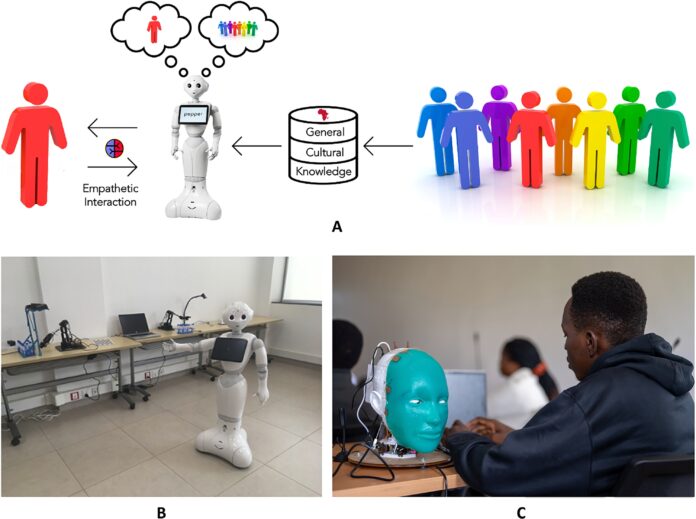A recent study by Adedayo et al. explores the importance of cultural competence in social robots to enhance their acceptance and adoption in Africa. As Africa embraces artificial intelligence (AI) for economic growth, development, education, healthcare, and more, the widespread adoption of technological innovations depends on cultural sensitivity. The focus is on social robotics, a rapidly growing field globally.
The Crucial Role of Cultural Competence in Social Robots for Meaningful Human-Interaction in Diverse Contexts
Cultural competence in social robots involves embedding culturally sensitive body, hand, and facial gestures. The goal is to ensure that robots can interact with people based on their cultural norms and expectations. This cultural awareness is crucial for effective human-robot interaction, especially in countries like Rwanda and South Africa, where researchers are conducting ethnographic research to understand the nuances of cultural interaction.
Nonverbal, verbal, and spatial interactions play a vital role in human-robot engagement. Nonverbal cues, such as gestures and eye contact, vary across cultures and must be considered to avoid stereotypical interactions. Verbal communication involves not only the spoken message but also the modulation of volume and timbre to respect cultural preferences. Spatial interaction requires an understanding of proxemics, considering how individuals position themselves relative to others.
To address these challenges, researchers at Carnegie Mellon University Africa and the University of the Witwatersrand are developing a software system for Pepper social robots. The system incorporates adaptable software primitives to generate culturally sensitive human-robot interactions. It includes components for detecting people, faces, eyes, gaze direction, hands, and voices, interpreting scenarios, and generating culturally appropriate behaviors based on an African culture ontology and knowledge base.
The study also explores the relevance of the research for students, highlighting the AI-robotics course at CMU-Africa. Students learn about the technical challenges of synchronizing lip and facial gestures with audio output, contributing to a deeper understanding of human-robot interaction technology.
Cultural Robots: Transforming Tech, Acceptance, and Hospitality in African Context
The cultural competence of social robots in Africa is seen as impactful in several ways. First, it provides Africans with the opportunity to develop their understanding of technology while gaining deeper knowledge of their diverse cultures. Second, it serves as a step toward the acceptance and adoption of social robotics in Africa, overcoming resistance rooted in the mismatch between Western-centric robot designs and African cultural expectations. Lastly, culturally sensitive robots can contribute to the hospitality industry by presenting African culture to tourists, acting as cultural ambassadors, and enhancing the overall tourist experience.
In conclusion, the research demonstrates how modern advances, such as AI, can collaborate with local traditions to improve life while respecting cultural values. Culturally competent robots provide a template for the responsible integration of technology, fostering trust and mutual understanding and paving the way for the adoption of various innovations across different sectors in a way that empowers communities on their terms.
















 The African Research (AR) Index is a comprehensive scholarly directory and database focused explicitly on journal publishers that publish and disseminate African research.
The African Research (AR) Index is a comprehensive scholarly directory and database focused explicitly on journal publishers that publish and disseminate African research.

